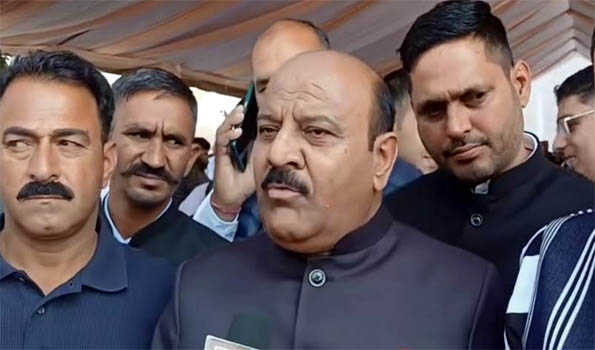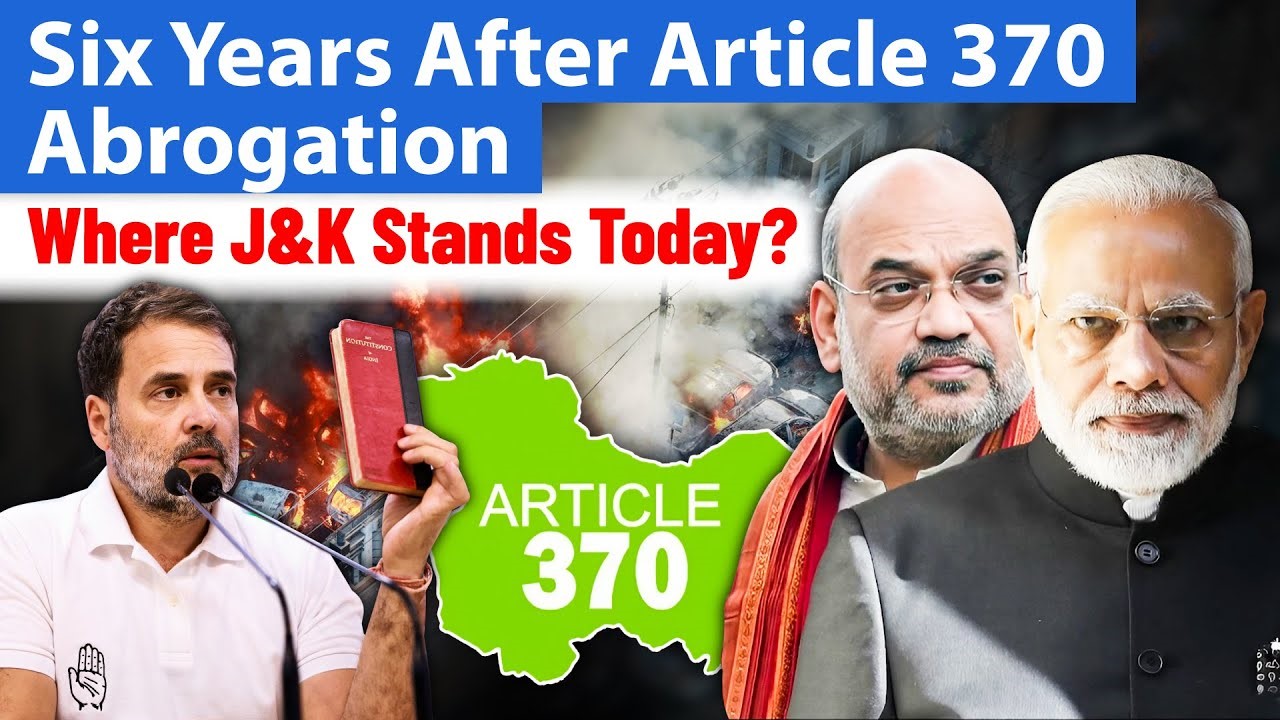A Political Earthquake in a Fragile Democracy
In a blunt and unprecedented political statement, Deputy Chief Minister Surinder Kumar Choudhary of Jammu and Kashmir has asserted that the elected government in the Union Territory lacks “full rights” to govern independently. His remarks strike at the heart of a long-standing debate: who really holds power in Jammu and Kashmir—the elected representatives or the appointed bureaucracy under the Lieutenant Governor?
His remarks come amid a major administrative reshuffle in which 24 IAS and JKAS officers were transferred—allegedly without consultation with the elected cabinet or ministers.
Choudhary didn’t mince words. He warned that continued undermining of democratic authority could provoke street-level agitation. He also reignited the core political demand: restoration of full statehood to Jammu and Kashmir.
This article delves deep into:
-
What the Deputy CM said and why it matters
-
Historical and constitutional context
-
The structure of power in the post-370 era
-
Bureaucratic vs. elected government tensions
-
Public and political reactions
-
Why this moment could be a turning point
What Did the Deputy CM Say? Breaking Down the Statement
In a press briefing on June 12, 2025, Deputy CM Surinder Kumar Choudhary issued a stinging critique of recent administrative decisions taken by Lt Governor Manoj Sinha:
“Our government was elected by the people of Jammu and Kashmir. Yet we lack full rights to function independently. If such interference continues, we may have no option but to go to the streets.”
This was in direct response to the reshuffling of 24 senior IAS and JKAS officers, a move made unilaterally by the LG administration. Choudhary was not consulted. Neither, reportedly, were any members of the elected National Conference-led government.
“This kind of decision-making process makes us wonder—how different are we from the colonial times?”
He also strongly reiterated the demand for full statehood—not just for symbolic reasons but to ensure democratic accountability.
Governance Under a Shadow: The Post-370 Political Structure
Since the abrogation of Article 370 in August 2019, Jammu and Kashmir has remained a Union Territory (UT) with a Lieutenant Governor appointed by New Delhi. Although Assembly elections were held and a government was formed under the National Conference and INDIA bloc alliance, the real control over administration remains with the LG’s office.
Here’s how power is currently divided:
| Function | Held by |
|---|---|
| Law & Order | Lieutenant Governor (Home Ministry) |
| Bureaucratic Appointments | LG |
| Police & Intelligence | LG |
| Elected Government’s Authority | Primarily limited to local development, education, tourism, etc. |
This creates a dual power center: one elected by the people, and another appointed by Delhi. While technically constitutional under the Jammu and Kashmir Reorganisation Act, 2019, it has led to frequent turf wars.
Bureaucratic Overreach? Examining the Latest Officer Reshuffle
On June 10, the LG administration ordered a reshuffle of 24 senior bureaucrats, including:
-
Divisional Commissioners
-
District Magistrates
-
Administrative Secretaries
None of these decisions, sources say, were even communicated to the Chief Minister or his cabinet until after they were made public.
Critics argue this undermines the basic principles of representative democracy. Civil servants, they argue, should report to elected ministers—not the other way around.
The Colonial Parallel: A Loaded but Important Historical Analogy
Choudhary’s reference to “colonial times” is not just rhetorical flourish. Under British rule, Indians were allowed to participate in local governance—but real power remained with the British-appointed Viceroys and Governors.
“If our ministers are not consulted in critical administrative decisions, what’s the difference between then and now?”
This analogy resonates deeply in a region with a complex political identity, where trust in central authority is historically fragile.
Public Sentiment: Growing Restlessness or Political Theatre?
Social media responses have varied—from supportive voices demanding full rights for the elected government, to cynical takes dismissing the remarks as posturing.
Voices in Support:
-
“If we vote for them, they should have the power to govern. Simple.” — Twitter user @sahilQazi
-
“It’s time bureaucrats respect the people’s mandate.” — Facebook comment on Kashmir Now
Voices of Caution:
-
“Choudhary is deflecting from real issues like unemployment and power cuts.” — Instagram story by @journalistAaqib
-
“What’s new? Every elected government has clashed with the LG since 2019.” — Comment on Reddit’s r/KashmirForum
Polls by local news portals indicate that 62% of respondents agree with the Deputy CM’s concerns about power imbalance.
Political Responses: Allies, Rivals, and the Centre
National Conference (NC):
Chief Minister Omar Abdullah supported Choudhary’s statement, saying:
“We’ve said from day one that without full statehood, governance is an illusion.”
People’s Democratic Party (PDP):
Mehbooba Mufti tweeted:
“The façade of democracy in J&K stands exposed. We stand by the Deputy CM.”
Bharatiya Janata Party (BJP):
State BJP president Ravinder Raina countered:
“This is not colonialism. This is constitutional governance. The LG has powers under law. Stop playing victim politics.”
Centre’s Response:
No formal reaction has been made by the Union Ministry of Home Affairs—yet. However, senior officials privately defended the reshuffle as a “routine administrative matter.”
The Demand for Statehood: A Reignited Flame?
The Deputy CM’s remarks have once again pushed statehood to the forefront of the political agenda. While the Centre has promised statehood “at an appropriate time,” no timeline has been set.
Without statehood:
-
The Assembly lacks real power over security and civil service
-
Ministers remain ceremonial in many sectors
-
Delhi retains a veto over almost everything that matters
The statehood demand is now becoming a cross-party consensus—with even some BJP allies in Jammu advocating for it.
What’s at Stake for Jammu and Kashmir?
This governance tug-of-war affects more than politics—it affects development, public service delivery, and citizen trust.
-
Projects slow down due to dual authority
-
Accountability is blurred—who answers when something fails?
-
Voter turnout risks decline if citizens feel their vote changes nothing
What’s Next? Scenarios and Strategic Takeaways
| Scenario | Likelihood | Impact |
|---|---|---|
| Centre engages with elected govt | Medium | Could defuse tensions |
| Elected govt launches symbolic protest | High | Likely to boost public sympathy |
| Centre delays statehood indefinitely | High | May erode credibility |
| Judiciary gets involved | Low | Unless a legal challenge is filed |
Editorial Take: A Moment of Reckoning
Choudhary’s words should not be dismissed as mere political theatre. They reflect a deep constitutional crisis unfolding in Jammu and Kashmir.
If elected leaders continue to feel powerless in their own state, democracy loses its meaning.
India’s strength lies in its democratic federalism. Jammu and Kashmir, long at the frontline of India’s nationhood, deserves not just peace, but also the dignity of self-governance.



